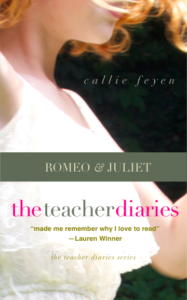
I was reading Brown Girl Dreaming one afternoon when my youngest daughter, Harper, who’d read the book before me, asked if I noticed what was special about Woodson’s “how to listen” poems. There are ten throughout the book, and each of them has something to do with listening.
“They all have to do with how we should listen?” I asked, but knew from Harper’s smile that I’d guessed wrong.
“They’re all haiku,” she told me proudly.
Sure enough, each one is three lines, following the 5-7-5 syllable rule.
how to listen #7
Even the silence
has a story to tell you.
Just listen. Listen.
how to listen #2
In the stores downtown
we’re always followed around
just because we’re brown.
I wonder why Woodson chose to write a series of haiku on listening throughout her poetic memoir. Perhaps it has something to do with understanding the heart of her story. In her essay on Woodson’s memoir, Megan Willome writes, “Most lives are a mix of both [the ordinary and the amazing], and sometimes we don’t know which parts are amazing and which are ordinary until we write them down. I think Woodson discovered which was which in writing this memoir.” I agree, and I think listening — in all it’s forms — is a necessary skill when we are figuring out which is which.
Perhaps Woodson’s “how to listen” haiku are requests rather than instructions: listen, share in my experience, and see the world through my eyes. Perhaps they are invitations to see how many ways we can (and should) listen. I’m thankful for the quiet summer when, for one reason, or another there was nothing to do but listen to my daughter talk about what she found out by observing poetry.
Try It
Woodson’s haiku also made me consider the lessons we learn in school, listening being one of them. What would a series of haiku on how to add or subtract look like? What would we learn about dribbling a basketball if the lessons were rendered in haiku? For this week’s poetry prompt, choose a subject or a lesson from education and write a how-to haiku (or a series of haiku!).
Featured Poem
Thanks to everyone who participated in our recent poetry prompt. Here’s one from Lynn White we enjoyed:
Legacy
Vera Lynn was a famous singer,
the Forces Sweetheart, no less.
My mother was Vera,
so I should be Lynn.
My mother liked things to be
right.
But even more than
the correctness
of Vera and Lynn,
she abhorred diminutives.
They were definitely not
right.
So I must have a name
which could not be shortened.
Joy was a contender, but,
just suppose that
I was a weepy child.
That name would not fit me.
For me it would not have been
right.
She needn’t have worried.
But worry she did.
So, Lynn it was
and Lynn I am.
My legacy
from my
mother.
—Lynn White
Photo By Petra Bensted Creative Commons, via Flickr. Post by Post by Callie Feyen, author of The Teacher Diaries: Romeo and Juliet.
This is a book about being a teacher, and about being a mother, and, in its way, about being a writer. But it is most fully a depiction of living with a work of literature, about the conversations literature can spark and the memories literature can hold and reconfigure. The acknowledgments suggest that writing this book helped Callie Feyen remember why she loved teaching. Reading it made me remember why I love to read. —Lauren Winner, bestselling author and Associate Professor, Duke Divinity School
- Poetry Prompt: Courage to Follow - July 24, 2023
- Poetry Prompt: Being a Pilgrim and a Martha Stewart Homemaker - July 10, 2023
- Poetry Prompt: Monarch Butterfly’s Wildflower - June 19, 2023

Donna Falcone says
Lynn – I loved reading your poem and it brought me back to all the reasons why names may (or may not) be chosen. 🙂 I’m so glad it’s here!
Sandra Heska King says
Lynn… I love your poem. I think your mom chose the perfect name.
Here’s a quick haiku
The Answer
when x is unknown
ours is not to reason y
just get x alone